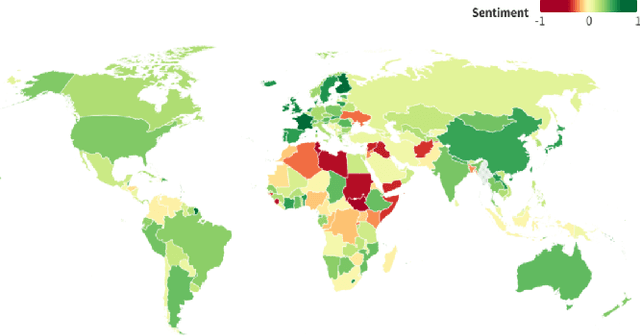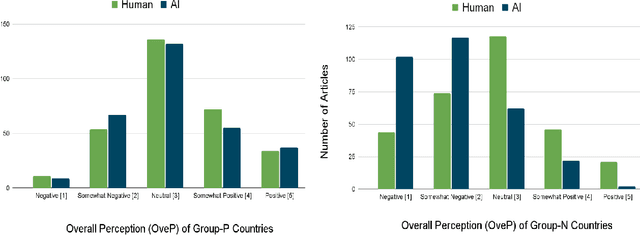Ruchi Panchanadikar
Unmasking Nationality Bias: A Study of Human Perception of Nationalities in AI-Generated Articles
Aug 08, 2023



Abstract:We investigate the potential for nationality biases in natural language processing (NLP) models using human evaluation methods. Biased NLP models can perpetuate stereotypes and lead to algorithmic discrimination, posing a significant challenge to the fairness and justice of AI systems. Our study employs a two-step mixed-methods approach that includes both quantitative and qualitative analysis to identify and understand the impact of nationality bias in a text generation model. Through our human-centered quantitative analysis, we measure the extent of nationality bias in articles generated by AI sources. We then conduct open-ended interviews with participants, performing qualitative coding and thematic analysis to understand the implications of these biases on human readers. Our findings reveal that biased NLP models tend to replicate and amplify existing societal biases, which can translate to harm if used in a sociotechnical setting. The qualitative analysis from our interviews offers insights into the experience readers have when encountering such articles, highlighting the potential to shift a reader's perception of a country. These findings emphasize the critical role of public perception in shaping AI's impact on society and the need to correct biases in AI systems.
Nationality Bias in Text Generation
Feb 14, 2023Abstract:Little attention is placed on analyzing nationality bias in language models, especially when nationality is highly used as a factor in increasing the performance of social NLP models. This paper examines how a text generation model, GPT-2, accentuates pre-existing societal biases about country-based demonyms. We generate stories using GPT-2 for various nationalities and use sensitivity analysis to explore how the number of internet users and the country's economic status impacts the sentiment of the stories. To reduce the propagation of biases through large language models (LLM), we explore the debiasing method of adversarial triggering. Our results show that GPT-2 demonstrates significant bias against countries with lower internet users, and adversarial triggering effectively reduces the same.
 Add to Chrome
Add to Chrome Add to Firefox
Add to Firefox Add to Edge
Add to Edge